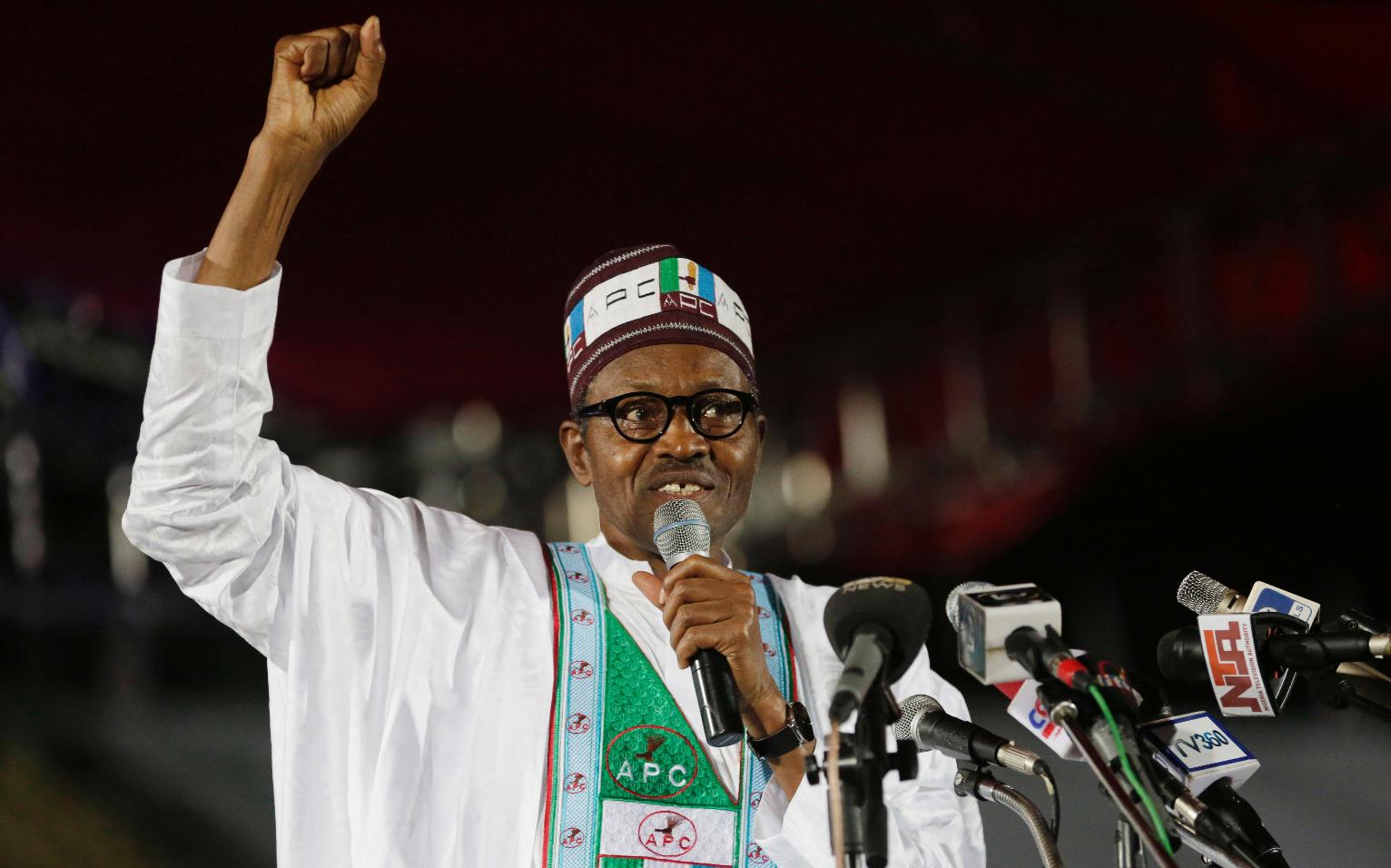If you care about human rights and if you care about democracy, you need to be watching the upcoming Nigerian presidential election very closely. You should also take note that the Western media’s coverage of the election has largely, without explanation, omitted a few critical facts.
And as Nigerians head to the polls on February 14th in what is arguably the most important election to date in their short history as a democracy, we observers need to be armed with a real understanding of what is at stake, beyond the headlines.
For me, it started few weeks ago. I noticed that I was reading a lot in the news about President Goodluck Jonathan, but very little about his opponent, General Muhammadu Buhari. After researching this presidential contender with whom the media has been rather hands-off, I was astounded by what I learned about him…and even more astounded that no one is talking about it.
Buhari is a former military dictator and an absolute pariah among the international human rights community. His record is alarming not only because of what happened during his previous reign, but also because of what it means for Nigeria’s future if this man is elected. Nigeria’s democracy is young and in many ways it is vibrant, but it is also fragile. And it could be demolished in an instant if placed in the wrong hands.
When examining the record of his past regime, the overarching truth is that Buhari was characterized by a ruthless aversion to democracy. In 1983, he ousted a democratically elected president in a bloody coup (he then ruled for 18 months before being overthrown by his own military in yet another coup). Buhari of the 1980s was a brutal dictator, his appetite for repression defined his reign. He is recalled, with a shudder, for his thorough disregard for human life and human rights.
Under Buhari, there was no fair, independent judiciary. The system was structured so that the accused were often denied right to a proper trial and access to legal representation.
He jailed journalists and critics who dared to speak out against him.
In 1984, he passed his infamous “Decree 4,” which criminalized the act of saying just about anything that could be construed as anti-Buhari. It is considered to be the worst anti-free speech law in all of Nigeria’s recorded history.
That same year, he ordered the kidnapping of Umaru Dikko, an outspoken political opponent in London – in an incident that led to a major, years-long diplomatic row between Nigeria and Britain that included the expulsion of Nigeria’s top diplomats by the British Government.
And then, fast forwarding to our current decade, there’s the rather small issue of an International Criminal Court case pending against Buhari. It is alleged that during the 2011 presidential election, Buhari (who ran for president in that election as well) called on his supporters to “kill” their fellow Nigerians. And kill they did. Video and audio evidence supports claims that, on his order, Buhari’s thugs slaughtered more than 800 innocent civilians. In attacks well-documented by Human Rights Watchand Amnesty International, Buhari devotees allegedly dragged families from their homes and butchered them en masse, raped women, and burned churches to the ground.
The reason for the violence? Because Buhari lost an election – an election that was overwhelmingly and enthusiastically deemed to be a free and fair democratic triumph by international election observers. He lost, so he wanted blood.
These are the facts. This is Buhari.
It is a frightening prospect to imagine this man, with this resume, winning the election. Yet perhaps equally frightening, given what transpired in 2011, is the thought of what he will do if he loses.
Sara Kavemi is active in global human rights advocacy. She has lived in middle America, the Middle East, and Sub-Saharan Africa. She has worked for several US-based international NGOs, advocacy organizations, and humanitarian aid projects.
![]() The opinions expressed in this article are solely those of the author.
The opinions expressed in this article are solely those of the author.







